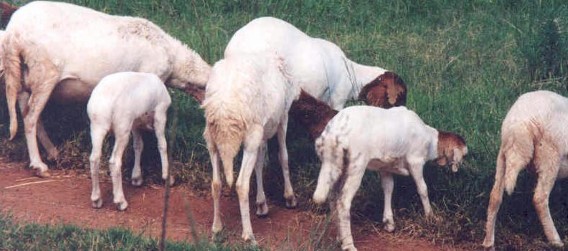Pedi sheep, indigenous to South Africa, are an integral part of the rich agricultural heritage of the region. Belonging to the Nguni type, along with the Zulu and Swazi breeds, Pedi sheep have been a presence in the area for centuries, dating back to the period between 200 to 400 AD. These sheep derive their name and distinctive characteristics from their primary association with the Bapedi people, who traditionally inhabit the northern regions of the country.
Characterized by their smaller size and distinct fat-tailed anatomy, Pedi sheep are primarily raised for meat production. Their compact stature and robust build make them well-suited to the diverse environmental conditions of the South African landscape.
Pedi sheep are typically polled, meaning they lack horns, which contributes to their ease of handling and management. Their coat colors vary, commonly including shades of white, brown, and red, reflecting the natural diversity observed within the breed.
Renowned for their hardiness and adaptability, Pedi sheep have evolved to thrive in various climatic and ecological conditions prevalent in South Africa. Their resilience and ability to efficiently convert available resources into valuable meat production make them valued assets for local farmers and communities.
In summary, Pedi sheep represent an essential component of South Africa's agricultural heritage, embodying centuries of selective breeding and cultural significance. Their role as a source of meat production, combined with their adaptability and resilience, underscores their importance in sustaining livelihoods and supporting traditional farming practices in the region.

